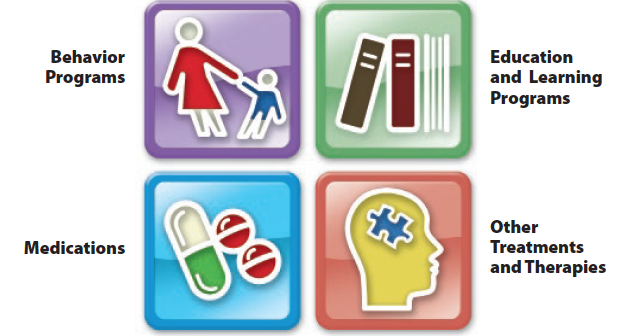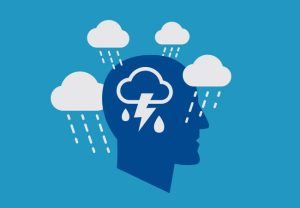Memory loss is one of the most common symptoms of hypothyroidism. If you are struggling with forgetfulness and have been diagnosed with hypothyroidism, don’t worry – you are not alone. In this article, we will discuss 10 ways that you can combat memory loss caused by hypothyroidism.
Contents
- 1 What Is Hypothyroidism?
- 2 What Is Memory Loss?
- 3 How Does Hypothyroidism Cause Memory Loss?
- 4 How Does Memory Loss Impact My Life?
- 5 Treatment Of Memory Loss and Hypothyroidism
- 6 Self-care Techniques To Deal With Memory Loss
- 7 Foods That Can Help Improve Memory
- 8 Therapy Options For Memory Loss
- 9 Conclusion
- 10 A Word From Therapy Mantra
What Is Hypothyroidism?
Hypothyroidism is a condition of the thyroid gland that causes it to produce less than normal amounts of thyroid hormone. Hypo- means “below normal” and -itis refers to inflammation or infection (thyro- is Greek for the shield, after its shape). Most cases are considered autoimmune in nature where the body attacks itself and destroys healthy tissue. This interferes with how your thyroid produces hormones needed by every cell in your body including those responsible for memory.
Underactive Thyroid Symptoms
- Weight Gain
- Dry Skin
- Hair Loss
- Depression
- Memory Loss
- Constipation
- Mood Swings
- Fatigue
- Decreased Appetite
- Muscle Aches
- Joint Pain
- Heavy Menstrual Periods
- Infertility
- Increased Cholesterol Levels
- High Blood Pressure
- Insomnia
Your risk increases if you have a family history of thyroid problems, are over the age of 60, or are female.
What Is Memory Loss?
There are three main types of memory: sensory, short-term/working, and long-term. Sensory memory is how your brain processes information through sight, smell, and touch. Short-term memories are what you use to remember where you put your keys or a phone number. Long-term memories include things like the birthdays of loved ones or childhood events. Also, hypothyroidism can make it harder to remember things. This can be frustrating and scary if it is not treated.
What Causes Memory Loss?
Hypothyroidism causes blood levels of TSH (thyroid-stimulating hormone) to rise because the thyroid is not producing enough hormone on its own. A deficiency in thyroid hormones can cause long-term memory loss and disrupt the ability to learn new things. The brain cannot function without adequate amounts of TSH, which is released by the pituitary gland when levels are low. If you do not treat your hypothyroidism, it will continue until all of the TSH is gone from your body. This can cause mental impairments such as confusion and mood swings.
Memory Loss Treatment

If you have hypothyroidism, you will need to take a synthetic form of levothyroxine (T-Hormone). This replaces the hormone that was lost due to surgery or damage. Depending on how severe your symptoms are may determine whether you take medication daily or weekly; however, most people find that taking it daily is more effective than weekly.
The best way to treat memory loss caused by hypothyroidism is with a combination of medication and lifestyle changes. If you have been diagnosed with an underactive thyroid gland, your doctor will likely prescribe some form of levothyroxine (T-Hormone). This replaces the hormone that was lost due to surgery or damage. If your symptoms are bad, you will have to take the medicine every day. But if your symptoms are not so bad, you can take the medicine once a week. But most people find that taking it every day is better because it has fewer side effects and you don’t gain weight or get depressed.
How Does Hypothyroidism Cause Memory Loss?
Hypothyroidism affects your memory because it causes the pituitary gland to release more TSH. This stimulates the production of thyroid hormones which are needed by every cell in your body including those responsible for memory. The problem is that these levels can fluctuate over time due to stress or changes in diet and lifestyle habits like exercise regimen and sleep patterns so it’s important not only to monitor them regularly but also make adjustments accordingly – this way you’ll always know what’s going on with how they impact each other!
How Does Memory Loss Impact My Life?

If you have hypothyroidism, there will be changes made to adjust life around a new diagnosis. Many people struggle with depression and anxiety as their symptoms change from day today. It is hard to focus on anything when your body feels like it’s falling apart. Some people find they can’t do their job or take care of their children like they used to.
There are a few ways to help combat memory loss caused by hypothyroidism. One way is to take medication, and another is to make some lifestyle changes. If you have been diagnosed with an underactive thyroid gland, your doctor will likely prescribe some form of levothyroxine (T-Hormone). This replaces the hormone that was lost due to surgery or damage. If your symptoms are bad, you will have to take the medicine every day; however, if your symptoms are not so bad, you can take the medicine once a week. Most people find that taking it every day is better because it has fewer side effects and you don’t gain weight or get into depression.
Another way is to make some lifestyle changes like doing exercises which can improve blood flow in your body, getting enough sleep at night so that you do not feel tired during the daytime, eating healthy foods such as fruits and vegetables which will help keep your digestive system working well. You should also try meditation or yoga if these things interest you!
Treatment Of Memory Loss and Hypothyroidism
The treatment for memory loss caused by hypothyroidism is to treat the underlying thyroid condition. This will help the brain function better, and improve memory problems. There are other treatments for memory loss, such as memory improvement exercises. You can play word games or do online puzzles to help improve your memory. You can also restore your confidence by doing these exercises. Also, you should also check with a doctor if you are suffering from any form of depression as it can worsen cognitive decline. Also try alternative therapies like aromatherapy, acupuncture, or herbal remedies to enhance concentration levels and mental agility naturally.
Self-care Techniques To Deal With Memory Loss
- Take breaks often to move your body and get some fresh air.
- Stay organized and keep a daily routine.
- Write things down or use a planner to help you remember important tasks and appointments.
- Engage in mentally stimulating activities, like puzzles, crosswords, and reading.
- Play social games with friends or family members.
- Get regular exercise, even if it’s just a walk around the block.
- See a therapist or counselor who can help you deal with any anxiety or stress you may be experiencing.
Foods That Can Help Improve Memory

- Omega-three fatty acids that are present in fish oil supplements improve cognitive function and memory.
- Vitamin B12 is essential for healthy brain function and is present in foods like beef, poultry, fish, eggs, and dairy products.
- Gingko Biloba is a natural herb that improves memory and cognitive function.
- Antioxidants like vitamins C and E can help protect the brain from damage caused by free radicals.
Therapy Options For Memory Loss
When you’re dealing with memory loss and a foggy brain, it’s important to talk through your feelings.
Getting things off of your chest can help clear the air and allow you to think more clearly about what is going on in your life.
A therapist or counselor can also help you figure out solutions for issues that may be causing stress, anxiety, depression, or other mental health problems. They will also give advice as to how best to cope with any symptoms you may have from hypothyroidism such as weight gain/loss, fatigue, etc… Therapists are trained professionals who know exactly how to deal with these situations so they won’t judge no matter what kind of situation happens during a session (in most cases anyway).
Conclusion
There are many ways that you can combat memory loss caused by hypothyroidism. By following the tips in this article, you can improve your memory and keep your mind sharp. Remember to speak with your doctor if you have any concerns about your memory or thyroid function. Also, together, you can work to find a treatment plan that works for you. Stay healthy and happy!
A Word From Therapy Mantra
Your mental health — Your psychological, emotional, and social well-being — has an impact on every aspect of your life. Positive mental health essentially allows you to effectively deal with life’s everyday challenges.
At TherapyMantra, we have a team of therapists who provide affordable online therapy to assist you with issues such as depression, anxiety, stress, workplace Issues, addiction, relationship, OCD, LGBTQ, and PTSD. You can book a free therapy or download our free Android or iOS app.



